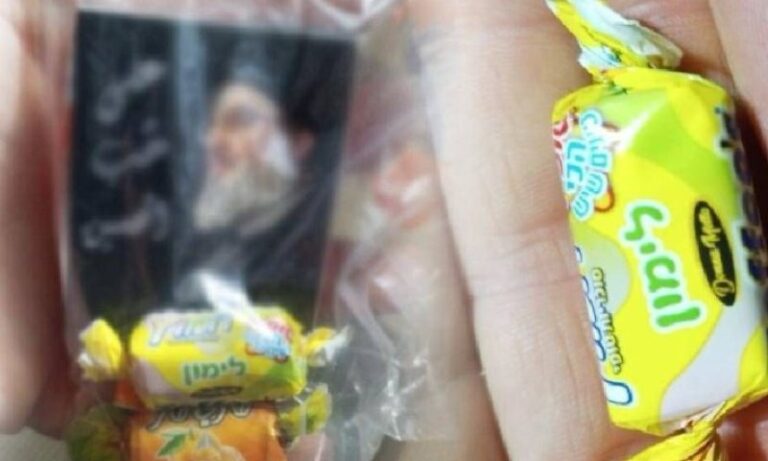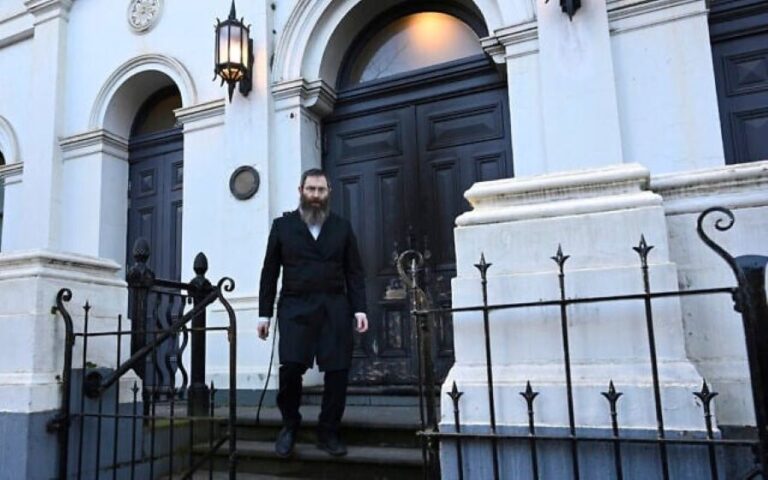 President and First Lady Rivlin on Thursday, 4 Tishrei, hosted an event attended by current and former young prison inmates from the Ofek Prison, entitled ‘Repentance, Apology, and Pardon’. The President explains the event was intended to coincide with the Aseres Yimei Teshuva.
President and First Lady Rivlin on Thursday, 4 Tishrei, hosted an event attended by current and former young prison inmates from the Ofek Prison, entitled ‘Repentance, Apology, and Pardon’. The President explains the event was intended to coincide with the Aseres Yimei Teshuva.
The President of Israel has the power for granting pardons and erasing criminal records, enabling young offenders to start of a new chapter in their lives and reintegrate into the labor market and society.
The event was held at the President’s Residence and was also attended by IPS Lieutenant Ofra Klinger; Director of the Ministry of Social Affairs and Social Services; probation service personnel, educators, members of the Pardons Department in the Ministry of Justice, representatives of the IDF and many more.
President Rivlin said, “It is not by chance that we are holding this meeting on the subject of ‘forgiveness’ specifically now, in the days of repentance between Rosh Hashanah and Yom Kippur. These are days of soul searching for all mankind. It is not easy to ask for forgiveness, true forgiveness from the heart. And no less easy than asking forgiveness is to give forgiveness. And yet, a society without forgiveness is an inhumane society. It is a society in which we are condemned to live eternally entrenched in the past without the ability to look to the future. The very existence of forgiveness, and from here the ability – and the authority – to pardon, holds great significance for us as a society, which is we are duty-bound to give a second chance, to forgive those who change their ways, those worthy of forgiveness.”
The President continued on to say, “In the State of Israel, the authority to give pardons, the authority to show compassion and forgiveness is the primary legal authority vested in the president of the state. It includes within it the ability to annul or reduce sentences whether we are talking about a prison term, community service, financial fine, license annulment. The authority of pardoning enables the president to clear and wipe clean criminal records of the convicted. While the authority to pardon is a responsibility of unparalleled magnitude, it is also a distinct merit. It is a responsibility in the sense that it gives the convicted the ability not to fulfil or complete their sentence as given. And it is a merit in that it is a privilege to award a second chance for normal life – unblemished – for those who deserve as such. The privilege of offering a new path, a different path, for those whose self-reflection brings them to recognize their deeds and their consequences. Yet to succeed in this path requires those who walk alongside them, even running alongside part of the way, guiding them through the critical junctions and providing succor and rest. And yes, those who not give up on them, but spur them onwards during the hard times. Only such a support network – together with the decision and effort of the one choosing a new path – can help turn the will into reality. Many of the professionals sitting here today make up that support network for those embarking on a new path. We have heard today about journeys and vision, and profound strength of change. The change – which some of you have achieved by your own efforts – and stories you have told are deeply impressive.”
Mr. Rivlin concluded by saying, “The Days of Awe are also known as the Ten Days of Repentance. It is our moment for forgiveness. This is the time to learn the essence of forgiveness – to ask and to give it. In the days following, we begin a new year and the choices that it brings lie before us. And even if we erred, and even if we sinned, and even if we have done wrong – it is possible to change. Because at the end of the path of change – if it is real and genuine change – forgiveness awaits”.
During the event, four young inmates and one young man who was released from prison after serving time as a teenager, spoke about the correctional process they had or were taking part in, through four major programs including the ‘Roots Project’ – a special project for youth from the Ethiopian community; and ‘Tzahala’ – which works on integrating former inmates into the IDF after their release. Another inmate performed a personal monologue from the prison community theater project, based on his personal experiences. Later, Oded Gadir and Erez Lev Ari performed a song from the project ‘Voices, Sounds and Memories’, which was composed based on lyrics written by artists after talks conducted with inmates from Ofek Prison.
IPS Lieutenant Ofra Klinger also spoke at the event, and said, “Prison wardens in the prison service must be authoritative, assertive and tough on the one hand, and on the other hand, simultaneously, they must be soft, attentive, and infinitely tolerant. All of this, while also tackling situations every parent knows from dealing with children – but a hundred times or a thousand times more extreme, in difficult situations taking place daily and hourly. And indeed, if this statement is also true of the general Prison Service, it is even more so when dealing with prisoners-youth. Believe me when it comes to our staff members, each and every one of them – you would all want these wonderful people to be your children’s principals, teachers and educators, counselors and activists in the youth movement – influential figures in their lives.”
(YWN – Israel Desk, Jerusalem/Photo Credit; Mark Neiman, GPO)










